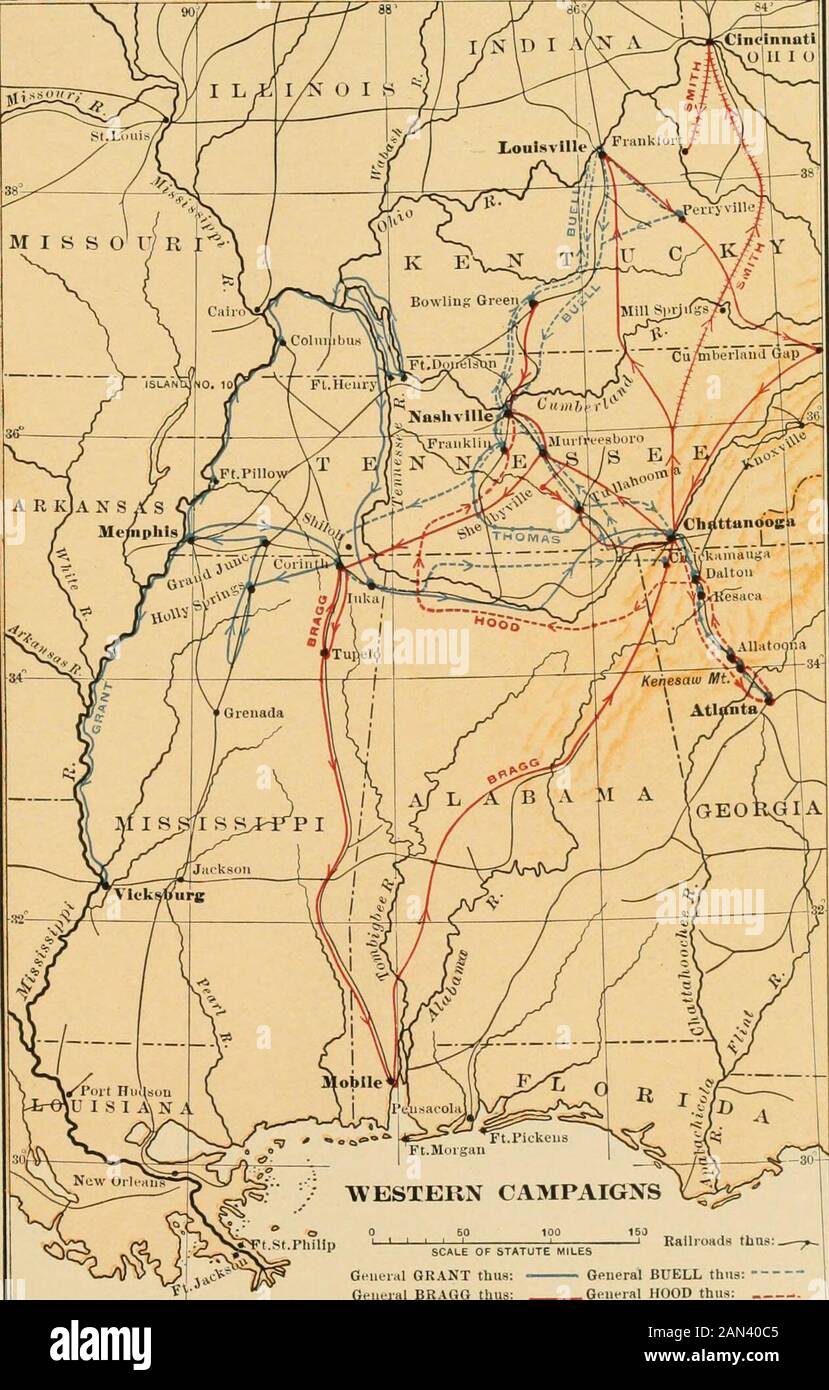The making of the American nation; a history for elementary schools . and most of the Southern ports had beenblockaded in order to prevent them from receiving food suppliesand from shipping their cotton. The states of Maryland, Mis-souri, and Kentucky had been prevented from seceding. Kansas admitted to the Union. 1861. — After the election ofPresident Lincoln the struggle in Kansas became a matter of 1 The United States had always denied the rig:ht of the search of neutral vesselsduring a time of war, hut the British government had always insisted upon it. In1812 the Americans had declared wa

Image details
Contributor:
The Reading Room / Alamy Stock PhotoImage ID:
2AN40C5File size:
7.2 MB (436.6 KB Compressed download)Releases:
Model - no | Property - noDo I need a release?Dimensions:
1263 x 1979 px | 21.4 x 33.5 cm | 8.4 x 13.2 inches | 150dpiMore information:
This image is a public domain image, which means either that copyright has expired in the image or the copyright holder has waived their copyright. Alamy charges you a fee for access to the high resolution copy of the image.
This image could have imperfections as it’s either historical or reportage.
The making of the American nation; a history for elementary schools . and most of the Southern ports had beenblockaded in order to prevent them from receiving food suppliesand from shipping their cotton. The states of Maryland, Mis-souri, and Kentucky had been prevented from seceding. Kansas admitted to the Union. 1861. — After the election ofPresident Lincoln the struggle in Kansas became a matter of 1 The United States had always denied the rig:ht of the search of neutral vesselsduring a time of war, hut the British government had always insisted upon it. In1812 the Americans had declared war against Great Britain almost expressly tomaintain tliis freedom from forcible search and the right to sail the high seas un-molested. In view of all this President Lincoln decided that to uphold CaptainWilkes would be inconsistent. Moreover, by demanding tlie return of Mason andSlidell, Great Britain became committed to the American principle of freedomfrom search. Fortunately for the Americans it established a precedeut, andtherefore was a diplomatic victory.. G VLt-OF lilElICO THE M.-N.WORKS 00^ SCALE OF STATUTE MILES GiMUMid GRANT thus; General BUELL thus: General. BRAGG thus: ____ General HOOD thus: _ .. General THOMAS thus: -—=-1- General SJIITH thus: 4rh-W-« THE CIVIL WAR 318 minor importance and was almost forgotten for the time. In 1861the people applied for admission, however, and Kansas wasadmitted as the thirty-fourth state. The Civil War being inprogress, there were no congressmen from the seceded states tocontend for slavery; Kansas therefore came in as a free state. THE CAMPAIGN IN THE WESTJANUARY, 1862, TO MAY, 1862 The Federal Plan of Campaign. 1862. — At the beginning ofoperations in 1862 the Federal army consisted of about five hun-dred thousand men; the Confederate forces numbered about threehundred and fifty thousand. The blockade of Southern ports, begun in 1861, had become fairly effective, and an attempt torun the blockade was pretty apt to result